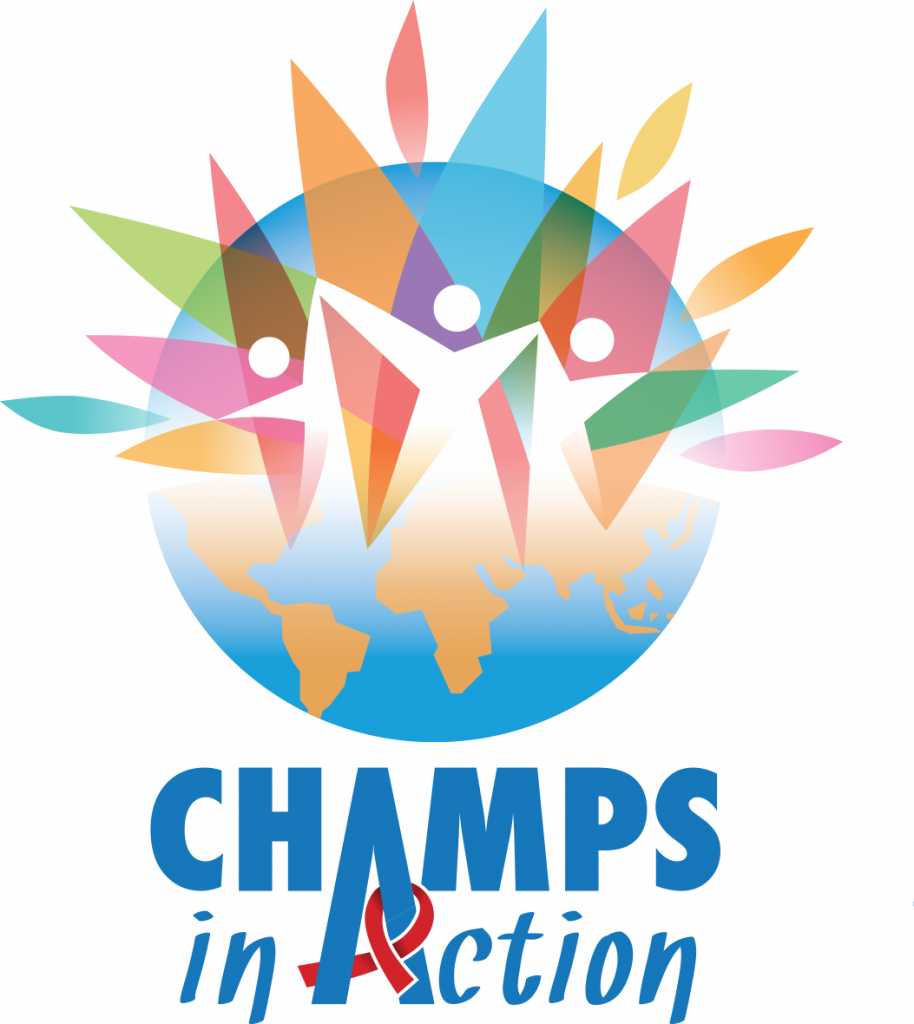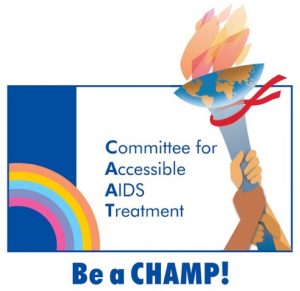Session 1: Introduction to ACE – Being Present & Defusion
1.4 Background on CHAMPs-In-Action
Learning Objectives:
- To provide participants with information about the background of CHAMPs-In-Action: rationale, research evidence, and impact
- To enhance participants’ curiosity and interest about the CHAMP intervention
- To celebrate community successes and inspire commitment among participants action for social justice
Materials: Projector, Laptop, Video on CHAMPs-In-Action background, Handout 1.4.1 – Background on CHAMPs-In-Action
Time Required: 20 Minutes
Activities & Instructions
Instructions to Participants
- Facilitator says, “As some of you might have heard, CHAMPs-In-Action is developed based on the CHAMP research study led by the Community Alliance for Accessible Treatment (CAAT). We are now going to show you a 10-minute video on CHAMP.”
- After showing the video, Facilitator debriefs by saying,
- “Does anyone have any questions about the video?”
- “What are your thoughts about CHAMP?”
- “You may find more information from the CAAT website.”
Key Summary Points
- CHAMP was successful because it was community-driven and it exemplified GIPA/MIPA, social justice, and collective empowerment principles.
- CHAMPs-In-Action is informed by CHAMP, but it is at a larger scale. During the period of the next four years, over 600 people will be trained and engaged as community anti-stigma and social justice champions.
Handout 1.4.1 – Background on CHAMPs-In-Action
CHAMPs-In-Action
 CHAMPs-In-Action is a 5-year alliance project funded by the Public Health Agency of Canada (PHAC) in late 2017 to scaleup the CHAMP intervention, which has proven to be eff ective in reducing HIV stigma and mobilizing collective action for social justice. This alliance project is led by the Community Alliance for Accessible Treatment (CAAT) in partnership with Africans in Partnerships Against AIDS (APAA), Asian Community AIDS Services (ACAS), Alliance for South Asian AIDS Prevention (ASAAP) and Centre for Spanish Speaking Peoples (CSSP).
CHAMPs-In-Action is a 5-year alliance project funded by the Public Health Agency of Canada (PHAC) in late 2017 to scaleup the CHAMP intervention, which has proven to be eff ective in reducing HIV stigma and mobilizing collective action for social justice. This alliance project is led by the Community Alliance for Accessible Treatment (CAAT) in partnership with Africans in Partnerships Against AIDS (APAA), Asian Community AIDS Services (ACAS), Alliance for South Asian AIDS Prevention (ASAAP) and Centre for Spanish Speaking Peoples (CSSP).
The goals of CHAMPs-In-Action are to reduce stigma of HIV and other social stigmas, advocate for social and health equity, and to promote the greater and meaningful involvement of people living with HIV/AIDS (GIPA/MIPA) and aff ected communities in HIV prevention, early testing, and the HIV care cascade (diagnosis, linkage to care, sustained treatment/care, and viral suppression). The project team will apply the integrated ACE model to achieve the project goal.
CHAMPs-In-Action is being implemented in the African, Caribbean and Black, East and Southeast Asian, Latino and South Asian communities. The CHAMP Alliance and CHAMPs-In-Action project teams will collaborate with their communities, tapping into the existing community strengths, resources and invaluable knowledge, to adapt and implement the CHAMP intervention. Collectively, they are committed to apply CHAMP to address the relevant issues that impact the physical, sexual, mental, social and spiritual health of these culturally diverse communities.
The CHAMPs-In-Action project teams will also use a trainthe- trainer model to build capacity among staff , peer leaders and core volunteers from the CHAMP Alliance agencies. Over a period of four years, over 600 people will be trained as champions. These trained champions will be mentored to implement the CHAMP intervention as an integrated program and to work with PLHIV and other vulnerable and marginalized individuals and groups, service providers, and multi-sectoral stakeholders to reduce HIV stigma and other social stigmas, promote collective resiliency, mobilize communities and encourage advocacy. It is anticipated that CHAMPs-In-Action will engage at least 3200 community members over the course of the project.
What is CHAMP?
 The Community Champions HIV/AIDS Advocates Mobilization Project (CHAMP) was a community-based intervention program conducted by the Community Alliance for Accessible Treatment in partnership with four AIDS service organizations and researchers from health and academic institutions. The goal of the intervention was to address HIV stigma through collective empowerment, capacity building, and community championship. CHAMP employed two stigma reduction interventions that were found to be effective in reducing HIV stigma: Acceptance Commitment Training (ACT) and Social Justice Capacity Building (SJCB).
The Community Champions HIV/AIDS Advocates Mobilization Project (CHAMP) was a community-based intervention program conducted by the Community Alliance for Accessible Treatment in partnership with four AIDS service organizations and researchers from health and academic institutions. The goal of the intervention was to address HIV stigma through collective empowerment, capacity building, and community championship. CHAMP employed two stigma reduction interventions that were found to be effective in reducing HIV stigma: Acceptance Commitment Training (ACT) and Social Justice Capacity Building (SJCB).
How was CHAMP conducted?
From 2011-2015, we engaged PLHIV and non-PLHIV community leaders (CLs) from faith-based, media, arts, and social justice sectors in Asian, Black, and Latino communities in the Greater Toronto Area (GTA) to participate in the study.
After the interventions:
√ PLHIV had reduced self-stigma.
√ Non-PLHIV CLs had reduced stigma against HIV/AIDS.
√ All participants reported an increase in confidence and readiness to speak out and take action to address HIV stigma and social injustice.
√ PLHIV reported increased self-acceptance, readiness to disclose their HIV status, and motivation to engage in HIV advocacy.
√ Non-PLHIV CLs reported increased awareness of HIV stigma and empathy towards PLHIV.
√ Both groups expressed motivation and commitment to champion HIV issues and address social injustice and demonstrated their action through documented activity logs over 9 months after the training.
What have we learned?
- HIV stigma is a big obstacle to effective HIV responses in all communities.
- The negative impact of HIV stigma is reinforced by intersecting oppressions such as racism, homophobia, sexism, and economic marginalization experienced by ethno-racial minority and newcomer communities.
- By engaging participants in experiential learning that build skills on psychological flexibility, valueoriented committed action, awareness on structural social injustices and strategies in community mobilization, the CHAMP intervention was shown to be effective in reducing HIV stigma and promoting participant championship on HIV issues.
- Based on our lessons learnt, our team has integrated the ACT and SJCB components to develop the Acceptance and Commitment to Empowerment (ACE) Model for the CHAMPs-In-Action training.
For more information on CHAMP, visit the website of the Community Alliance for Accessible Treatment: https://caat.link

